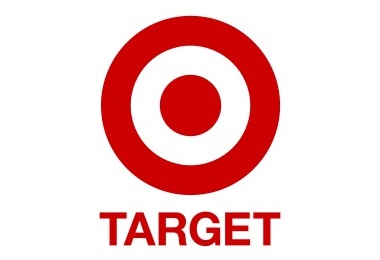Retail
Target to Invest Tiny $5 Million in Cyber-Security Education
Published:
Last Updated:
As if a breach of Target Corp. (NYSE: TGT) customer accounts that allowed hackers to steal data from at least 70 million people was barely an issue any more, the huge retailer has decided one of the most important things it can do is to educate consumers about cyber security. It has elected to spend a modest $5 million on the effort, an amount that is an insult to the people whose personal data was hacked.
A group of nationally recognized, respected cybersecurity organizations in cybersecurity and consumer protection will launch a campaign to educate consumers about cybersecurity and the dangers of phishing scams. Target will invest $5 million in a multi-year campaign for this effort. (Target’s revenue is about $45 million a day)
“Target has a longstanding history of commitment to our communities, and cybersecurity is one of the most pressing issues facing consumers today,” said Gregg Steinhafel, chairman, president and chief executive officer. “We are proud to be working with three trusted organizations — the National Cyber-Forensics and Training Alliance (NCFTA), National Cyber Security Alliance (NCSA) and Better Business Bureau, Inc. (BBB) — to advance public education around cybersecurity.”
The group is going to meet in Washington soon to decide what its next steps will be. Perhaps it could have announced some of those along with the initiative, since Target thinks the initiative is so important.
Contrast the cyber-security education plan with an announcement Target made just several days ago:
Target today announced updates on its continuing investigation into the recent data breach and its expected fourth quarter financial performance.
As part of Target’s ongoing forensic investigation, it has been determined that certain guest information — separate from the payment card data previously disclosed — was taken during the data breach.
This theft is not a new breach, but was uncovered as part of the ongoing investigation. At this time, the investigation has determined that the stolen information includes names, mailing addresses, phone numbers or email addresses for up to 70 million individuals.
Much of this data is partial in nature, but in cases where Target has an email address, the Company will attempt to contact affected guests. This communication will be informational, including tips to guard against consumer scams. Target will not ask those guests to provide any personal information as part of that communication.
The retailer’s customers would probably rather have more information about what Target has done to help them after the breach than to be educated about how bad security problems could be in the future –and how people might avoid them.
Credit card companies are pulling out all the stops, with the issuers are offering insane travel rewards and perks.
We’re talking huge sign-up bonuses, points on every purchase, and benefits like lounge access, travel credits, and free hotel nights. For travelers, these rewards can add up to thousands of dollars in flights, upgrades, and luxury experiences every year.
It’s like getting paid to travel — and it’s available to qualified borrowers who know where to look.
We’ve rounded up some of the best travel credit cards on the market. Click here to see the list. Don’t miss these offers — they won’t be this good forever.
Thank you for reading! Have some feedback for us?
Contact the 24/7 Wall St. editorial team.